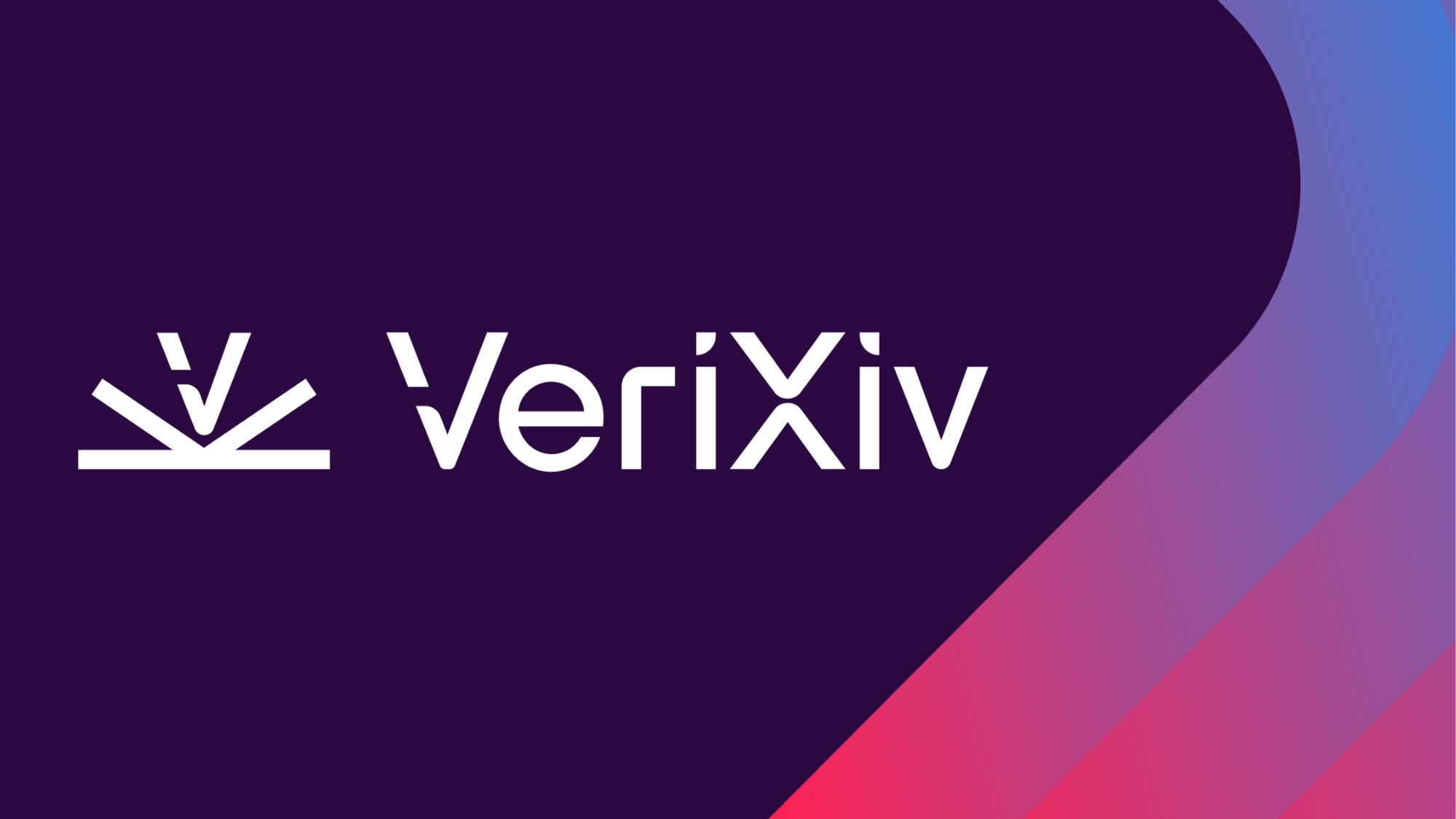
VeriXiv publishes its first preprints
We are delighted to share that the first preprints are now live on the new preprint server, VeriXiv (pronounced very-kive). VeriXiv is a new type of verified preprint server, developed through F1000’s partnership with the Gates Foundation.
In the first instance, this server will support Gates grantees in complying with their refreshed open access policy that requires all their funded research to be made available as a preprint from January 2025. However over time, we expect to expand the remit of the server to include preprints from a wide variety of communities and provide routes for both unreviewed and peer reviewed preprints to be submitted to a growing number of journals.
This launch also signifies the transition of the publishing platform, Gates Open Research, into a more standard Publish-Review-Curate model through the separation of the Version of Record/Record of Versions that will remain on Gates Open Research, as distinct from the preprint and the associated open peer review which will now sit on VeriXiv.
The extensive and robust verification checks conducted will assess a range of issues, including similarity concerns, image manipulation, author verification and competing interests. Once a preprint has passed these checks, the preprint will be made available on VeriXiv in XML, HTML and PDF format (most preprint servers do not provide XML).
In addition, open research transparency checks will be conducted to assess whether the underlying data has been made available in an appropriate repository and that methods have been included to support reproducibility. Authors will be strongly encouraged to pass these open research checks, although it will not be a requirement prior to the preprint being made available.
Once published on VeriXiv, authors can choose for their preprint to be peer reviewed prior to publication on the Foundation’s own publishing platform, Gates Open Research, or they can submit to any other publication for consideration. Alternatively, researchers may decide not to take the article any further, in which case it will remain openly accessible as a verified preprint on VeriXiv.
Content verification
The purpose of VeriXiv is to ensure that preprints undergo a more stringent set of authorship, publishing ethics and research integrity checks than many other preprint servers prior to publication. Whilst speed of sharing new discoveries is clearly very important in accelerating research progress towards tackling some of today’s major societal challenges, we feel it is crucial to balance this with ensuring adequate checks are conducted on content prior to posting.
We know that all types of content verification (whether conducted by internal editorial teams or by expert peer reviewers) will undoubtedly miss issues at times. However, as we see from both preprints and the peer reviewed literature, there is a growing issue of problematic content being shared, whether due simply to poor research practice or unintentional misinformation, or in some cases due to deliberate malpractice and disinformation. Regardless of the cause, this is leading to growing mistrust in scholarly research by some parts of society which will inevitably damage support for research funding as well as for uptake of important societal actions such as use of vaccines during public health emergencies or changes in lifestyle required to try and abate climate change.
Consequently, while preprint servers typically clearly label content as not being peer reviewed (as indeed VeriXiv does), we feel it is just as important that preprint content is editorially checked to the same level of rigour prior to publication as journal content typically is. We are currently working on developing an approach to displaying on the preprints which checks have been undertaken and passed so that users can have greater clarity on how much to trust the content.
In this regard, we are keen to work with all parts of the scholarly communications community to work towards consistent standards around labelling these checks for all types of published content. This could not only make it easier for users to understand the checks undertaken across servers, platforms and publishers, but also reduce unnecessary duplication of effort in repeated checks as content moves from one system, provider or publisher to another. To work towards this, we are delighted to be running a session at NISO Plus 2024 Global/Online on 18 September alongside Blaine Butler (Center of Open Science) who is leading United2Act’s Working Group on developing trust markers, and Kathryn Funk (NLM) who have been piloting the indexing of preprints, to discuss the development of standards for trust markers in published content.
Collaborations
Whilst VeriXiv will initially focus on publishing preprints from Gates grantees, we expect to expand the breadth of preprints on the server beyond this community. We are keen to explore ideas and opportunities to utilize the verified preprint approach more broadly, thereby bringing together a wider range of verification approaches, from our initial checks through to different forms of peer review.
If you are interested in exploring collaboration opportunities, whether for an existing preprint server, or a community who would like their own preprint area, or you are interested in exploring new forms of publication and verification, then please do get in touch at info@f1000.com.
